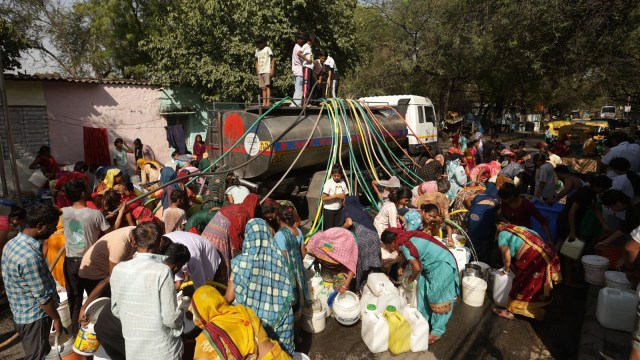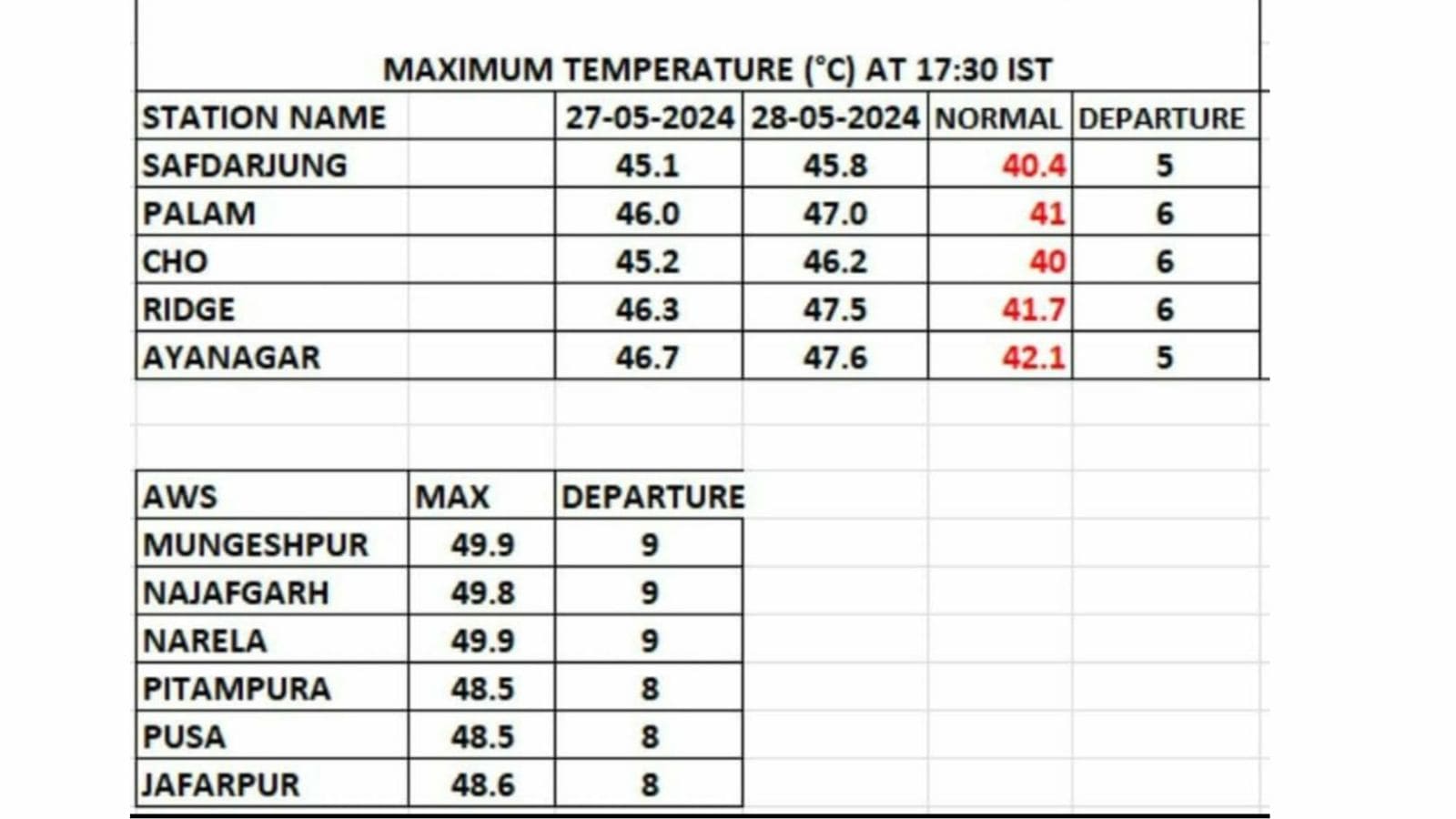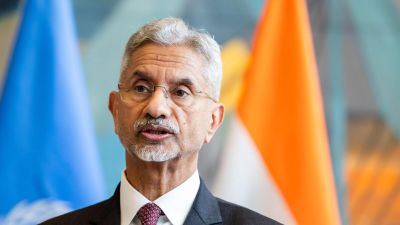Heat nears 50°C, water crisis hits Delhi; Govt warns against wastage
In the first clear indication of a serious water crisis in Delhi, which is largely dependent on neighbours Haryana and Uttar Pradesh to meet its soaring water demands, Atishi appealed to the people to not waste water.
 People collect drinking water from a tanker at Sanjay Camp in New Delhi on Tuesday. (Express photo by Gajendra Yadav)
People collect drinking water from a tanker at Sanjay Camp in New Delhi on Tuesday. (Express photo by Gajendra Yadav)WASHING CARS using a hose or letting water tanks overflow may soon lead to challan for excess use of water, Delhi Water Minister Atishi said Tuesday, even as the city continued to experience severe heat conditions with the maximum temperature rising up to 49.9 degrees Celsius at some places.
The minister also accused Haryana of not releasing Delhi’s share of water since May 1 and said that if the issue is not resolved soon, Delhi will approach the Supreme Court.
In the first clear indication of a serious water crisis in Delhi, which is largely dependent on neighbours Haryana and Uttar Pradesh to meet its soaring water demands, Atishi appealed to the people to not waste water.
“Even today I saw that in many residential areas of South Delhi, water is flowing in the driveways outside people’s houses due to washing of vehicles. My appeal to everyone is that you should not wash vehicles this way. If this public appeal does not work in the next one or two days, it is possible that we may have to impose a challan on excess usage of water. But right now we are issuing this appeal,” she said at a press conference.
 People collect drinking water from a tanker.
People collect drinking water from a tanker.
The government has also decided to rationalise water supply in different parts of the national capital. “To address the problem of water scarcity, we have taken a slew of measures such as reducing water supply from twice a day to once a day in many areas… The areas which currently get water twice a day, will get once a day now… the water thus saved will be rationed and supplied to the water-deficient areas where supply lasts only 15 to 20 minutes a day,” Atishi said.
Delhi, like several parts of Central and Northwest India, is in the grip of a heatwave, with the maximum temperature touching 49.9 degrees Celsius at two automatic weather stations in Mungeshpur and Narela. The manual observatories at Aya Nagar and Ridge near Delhi University also broke their previous records for highest maximum temperatures at 47.6 degrees Celsius and 47.5 degrees Celsius, respectively.
At the city’s base station of Safdarjung, the maximum temperature touched 45.8 degrees Celsius, the highest this season so far and also the highest since May 2020, when it touched 46 degrees Celsius.
The IMD forecast says that the maximum temperature on Wednesday is expected to be around 46 degrees Celsius.
 Heatwave observed at most places and severe heatwave at a few places over Delhi today.
Heatwave observed at most places and severe heatwave at a few places over Delhi today.
Adding that she understands that people will face problems, Atishi said, “We should not only think about ourselves…We should stand together and think about everyone…Today, we are in a very difficult situation where water supply to Delhi is being stopped by the Haryana government… Please co-operate and use the water judiciously….”
Dependent on Haryana, UP
Delhi's water requirement is 1,290 million gallons daily (MGD), according to the 2022-23 economic survey. While 64% of the water requirement is met through Haryana, 26.5% is met through Uttar Pradesh.
Accusing the Haryana government of not releasing Delhi’s assigned share of water since May 1, she said, “The Yamuna water level at Wazirabad was 674.5 feet on May 1 and it has reduced to 669.8 feet today… The average water level should be maintained… Last year in April, May and June, the minimum level was maintained at 674.6 feet. But when Haryana does not release enough water to Delhi, the raw water amount reduces and the water treatment plants in different areas also slow down.”
 A man rides his cycle near a landfill site on a hot summer day during a heatwave in New Delhi. (Reuters)
A man rides his cycle near a landfill site on a hot summer day during a heatwave in New Delhi. (Reuters)
Atishi said if the Haryana government does not resolve the issue and release the required water to the national capital, Delhi will approach the Supreme Court.
While 64 per cent of Delhi’s water needs are met through Haryana, 26.5 per cent are met through Uttar Pradesh, according to the latest economic survey.
The city’s water requirement is 1,290 million gallons daily (MGD), according to the survey for 2022-23.
On May 24, the Delhi Jal Board said in a press release that water production had been ramped up to “close to 1,000 MGD” against an installed capacity of 956 MGD (through more extraction from tubewells and ranney wells). The water utility’s summer reports, however, show that since May 11, it has been averaging around 980 MGD.







